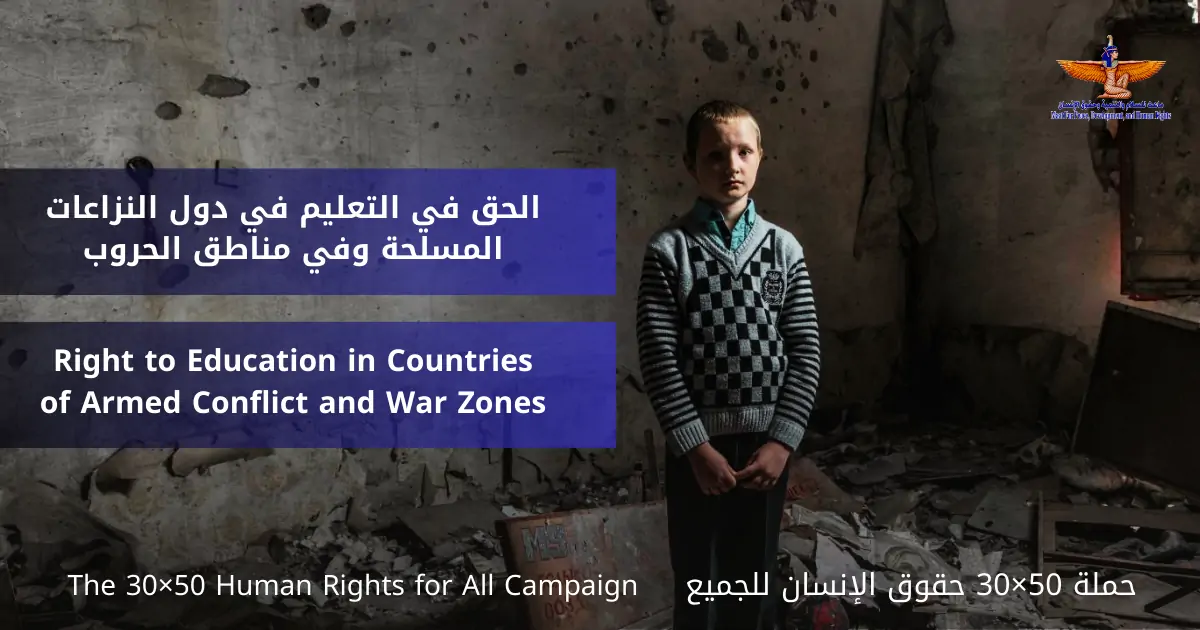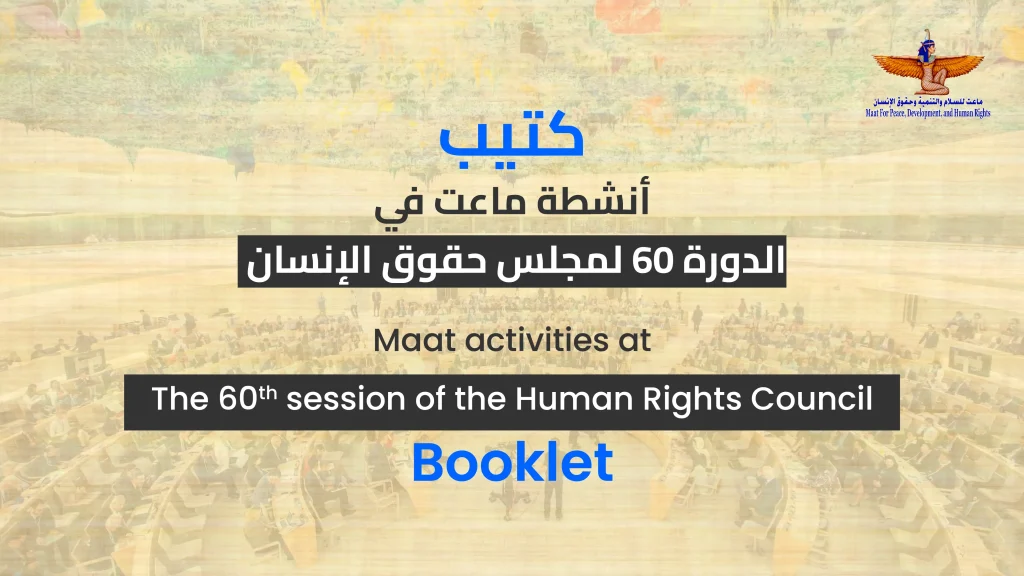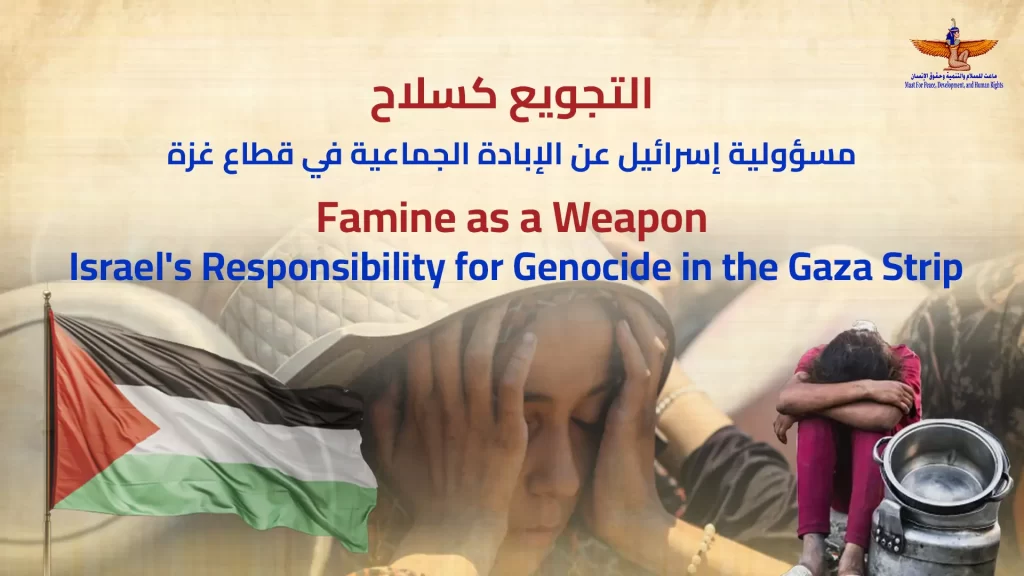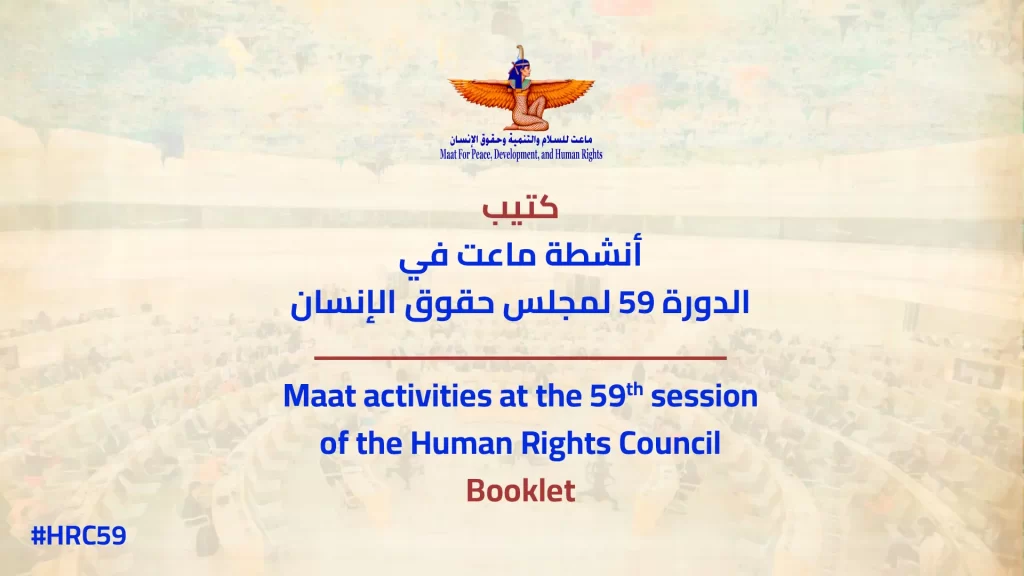Introduction:
The right to education is one of the basic human rights regardless of race, gender, nationality, social status, religion, political leanings, age, or disability. Several international and regional agreements have guaranteed this right. The realization of the right to education leads to the enforcement of other rights; when people are empowered through education, they are better equipped to exercise their rights and advocate for themselves and others. Without access to suitable education, individuals may struggle to recognize and defend their rights, as well as address human rights violations. Education is widely recognized as a great essential value as the most effective tool for personal empowerment and human dignity. As well as being considered as an inherent right, encompassing various social, economic, and cultural aspects of human rights. It is a social right because in the context of society, it promotes the full development of the human personality, an economic right because it facilitates economic self-sufficiency through work, and a cultural right because the international community has directed education towards building a global culture of human rights. Ultimately, it is considered a fundamental requirement for individuals to thrive in today's society.
In the same context, the right to education has been emphasized in a number of international treaties and agreements. It has been included in many regional treaties and enshrined as a right in the majority of national constitutions. The 1948 World Declaration of Human Rights, despite it is not legally binding, clearly and explicitly refers to the right to education. Article (26) stipulates that “Everyone has the right to education. Education shall be free, at least in the elementary and fundamental stages. Elementary education shall be compulsory, technical and professional education shall be made generally available, and higher education shall be equally accessible to all based on merit” . Article 13 of the International Covenant on Economic, Social, and Cultural Rights of 1966 refers to the right to education, stipulates that “The States Parties to this Covenant recognize the right of everyone to education. They agree that education shall be directed to the full development of the human personality and the sense of its dignity, and shall strengthen the respect for human rights and fundamental freedoms” . The right to education is also among the goals of Sustainable Development 2030, as the fourth goal of the agenda stipulates ensuring quality, equitable, and comprehensive education for all .
On the other hand, although most countries have ratified international and regional treaties affirming the right to education; millions worldwide are still deprived of educational opportunities due to the lack of resources, capacity and political will. Furthermore, the lack of appropriate legislative and administrative frameworks to ensure the implementation of this right and its application in practical reality. In this regard, we must point out that protecting the right to education under the conditions of armed conflicts and insecurity in the Middle East and North Africa region have become a difficult challenge, especially since many conflicts and wars are still ongoing in many countries of the Arab region; such as Yemen, Sudan, Syria, and Libya. Recently the brutal attacks carried out by the Israeli occupation on the Gaza Strip have almost completely disrupted the educational process in the Occupied Palestinian Territory and the Gaza Strip in particular. The targeting of schools and educational facilities results in many schools being out of work, along with several other factors such as poverty, low economy, underage marriage, and child labor.
In light of the above, and within the framework of the 50 x 30 Human Rights for All Campaign launched by Maat for Peace, Development and Human Rights on 10 December 2022 to raise awareness of the articles contained in the Universal Declaration of Human Rights (UDHR), and which shall continue until 10 December 2023; the 75th anniversary of the Declaration, Maat focuses in this report on Article 26 of the UDHR and the violations to which this right is exposed in a number of countries of conflict and war.

 |
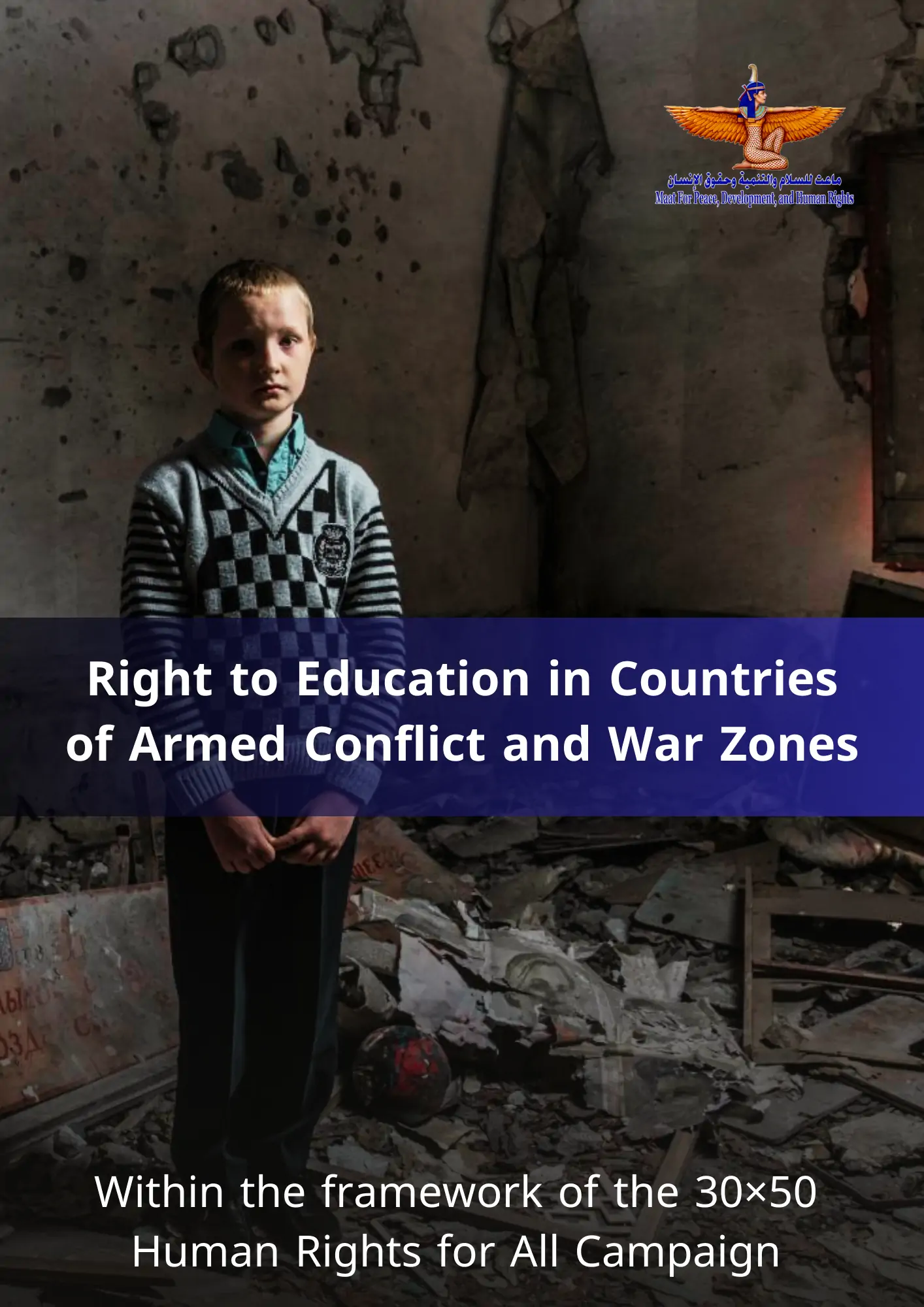 |
shortlink: https://maatpeace.org/en/?p=40972


